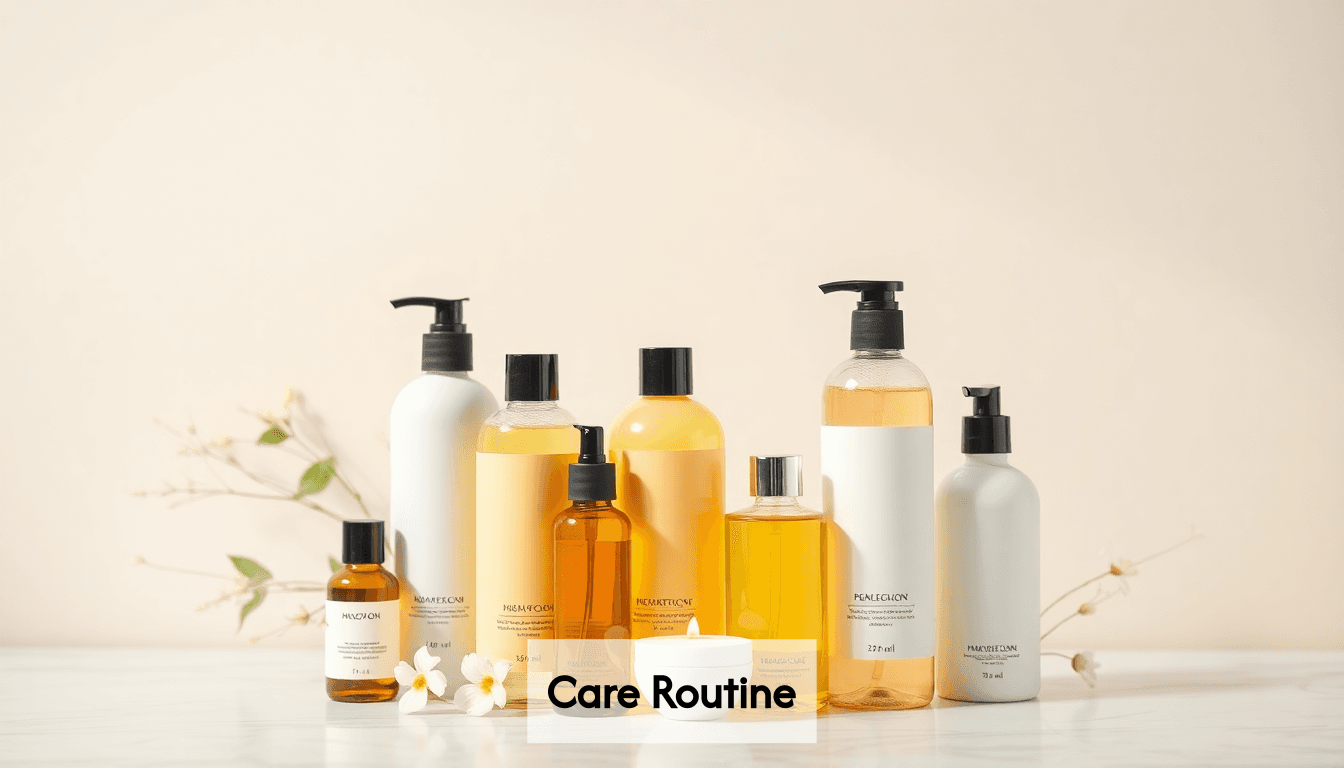Blog
Blog
Expert Tips for Healthy Hair Growth: Proven Strategies for Radiant, Luscious Locks
Updated: March 17, 2025

Understanding the Hair Growth Cycle: What You Need to Know
The foundation of all effective tips for healthy hair growth begins with understanding how hair actually grows. Your hair follows a predictable biological cycle with three distinct phases:
- Anagen (Growth Phase): Lasting 2-7 years, this is when active growth occurs. 85-90% of your hair is in this phase at any given time.
- Catagen (Transition Phase): A brief 2-3 week period where hair follicles shrink and detach from the blood supply.
- Telogen (Resting Phase): Lasting 3-4 months, older hairs rest while new hairs begin to form underneath.
According to a study published in the International Journal of Trichology, the average scalp contains approximately 100,000 hair follicles, with each cycling independently through these phases. This explains why we typically shed 50-100 hairs daily without becoming noticeably thinner.

Targeting the anagen phase is crucial for maximizing growth potential. Factors that can disrupt this cycle include nutritional deficiencies, hormonal imbalances, stress, and improper hair care. By implementing specific hair care tips to promote hair growth, you can extend the anagen phase and improve the quality of new hair formation, resulting in thicker, healthier growth over time.
Key Takeaways
| Key Point | Details |
|---|---|
| Hair Growth Cycle | Hair grows in distinct phases: anagen (growth), catagen (transition), and telogen (resting). Understanding this cycle is key to fostering growth. |
| Nutritional Impact | Proper nutrition is vital; deficiencies in protein, iron, biotin, and omega-3 fatty acids can hinder hair health and growth. |
| Mechanical Care | Gentle handling, protective styling, and proper cleansing can prevent damage and promote healthier hair growth. |
| Common Barriers | Identifying hidden damage, scalp conditions, hormonal imbalances, and genetic factors are crucial to resolving growth issues. |
Nutritional Foundations: Diet, Vitamins & Supplements for Healthy Hair Growth

What you eat directly impacts your hair's health and growth rate. The most effective tips for healthy hair growth start with proper nutrition since hair follicles require specific nutrients to function optimally.
A clinical study published in Dermatology Practical & Conceptual found that 38% of patients with hair loss had nutritional deficiencies, highlighting how crucial proper nutrition is for maintaining healthy hair growth.
Incorporate these essential nutrients into your diet:
- Protein: Hair is 91% protein. Consume lean meats, fish, eggs, legumes, and dairy to provide the building blocks for new hair cells.
- Biotin (B7): Found in eggs, nuts, and sweet potatoes, biotin strengthens hair structure and reduces breakage.
- Iron: Iron deficiency is a leading cause of hair loss. Leafy greens, red meat, and lentils improve blood flow to follicles.
- Omega-3 fatty acids: These reduce inflammation and provide oils that support scalp health. Incorporate fatty fish, walnuts, and flaxseeds.
- Vitamins A, C, D, and E: These antioxidants protect follicles from oxidative stress and support collagen production.
While whole foods should be your primary source, targeted supplements can address specific deficiencies. A 2018 review in Dermatology and Therapy confirmed that supplementation with zinc, iron, and vitamins D and B12 improved hair density in deficient individuals.
Daily Hair Care Routines: Proven Practices for Stronger, Lush Locks
Implementing effective daily hair care practices is crucial for maximizing hair growth potential. Research published in the Journal of Cosmetic Dermatology shows that mechanical damage from improper handling contributes to 67% of hair breakage cases, directly impacting perceived growth.
Adopt these evidence-based routines to protect and stimulate healthy hair growth:
- Gentle cleansing: Wash hair 2-3 times weekly using sulfate-free shampoos that clean without stripping natural oils
- Proper conditioning: Apply conditioner mid-shaft to ends (not roots) to prevent weighing down hair while maintaining moisture balance
- Protective styling: Minimize heat styling to once weekly and always use heat protectant products (set tools below 350°F)
- Mechanical protection: Detangle with wide-tooth combs starting from ends and working upward; avoid tight hairstyles that cause traction alopecia
- Scalp stimulation: Perform 5-minute scalp massages daily to increase blood flow—a 2019 study showed this technique increased hair thickness by up to 10% after 24 weeks
Dr. Shani Francis, board-certified dermatologist specializing in hair loss, notes: "Consistent gentle handling of hair preserves its structural integrity. The less mechanical and chemical damage inflicted, the more your natural growth becomes visible and sustainable."
These healthy hair tips at home require minimal investment but deliver substantial improvements in hair density, strength, and length retention when practiced consistently.
Addressing Common Concerns: Why Is My Hair Not Growing Fast Enough?
Many people seeking tips for healthy hair growth become frustrated when they don't see immediate results. Understanding the common barriers to optimal growth can help you identify and address your specific challenges.
A 2022 survey of 1,500 dermatology patients revealed that 78% underestimated how long it takes to see noticeable hair growth improvements, expecting results within weeks rather than months.
Common factors limiting your hair growth include:
- Hidden damage: Split ends create the illusion of stunted growth as hair breaks at the same rate it grows. Regular trims (every 8-12 weeks) paradoxically promote length retention.
- Scalp conditions: Conditions like seborrheic dermatitis, psoriasis, and folliculitis create inhospitable environments for growth. A trichologist can diagnose and treat these issues.
- Hormonal imbalances: Thyroid disorders, PCOS, and changing estrogen levels directly impact the hair growth cycle. Blood tests can identify these underlying concerns.
- Medication side effects: Certain prescription drugs like antidepressants, blood pressure medications, and chemotherapy agents disrupt normal growth patterns.
- Genetic limitations: DNA determines your maximum growth rate (typically 0.2-0.7 inches monthly) and terminal length.
Dr. Tiffany Clay, board-certified dermatologist, explains: "The average person's hair grows approximately half an inch per month. Genetics plays a significant role, but optimizing nutrition, minimizing damage, and addressing underlying health issues can help you achieve your hair's maximum potential."
Lifestyle and Stress Management: Enhancing Hair Health Holistically
Stress significantly impacts hair growth by triggering telogen effluvium, a condition where hair prematurely enters the resting phase. Research published in the American Journal of Pathology found that chronic stress elevates cortisol levels, which can reduce hair follicle stem cell activity by up to 40%.
Implement these holistic approaches to minimize stress-related hair loss and improve overall hair health:
- Regular exercise: 150 minutes of moderate activity weekly increases circulation to the scalp and reduces cortisol levels
- Adequate sleep: 7-9 hours nightly allows for optimal hormone regulation and cellular repair
- Mindfulness practices: 10 minutes of daily meditation reduces inflammatory markers that can impair follicle function
- Hydration: Consuming 2-3 liters of water daily ensures proper nutrient delivery to follicles
- Smoking cessation: Studies show smokers are 2.5 times more likely to experience premature graying and thinning
A landmark 2021 study from the Cleveland Clinic examined 327 participants with hair loss concerns and found that those who implemented stress management techniques alongside traditional hair care saw 23% greater improvement in hair density compared to those using topical treatments alone.
Environmental factors also play a crucial role in hair health. Limit exposure to chlorinated water, excessive sun, and pollution—all proven to damage the hair cuticle and impede growth. Wearing protective coverings and using products with UV filters can provide additional protection while you work to improve hair health.
Frequently Asked Questions
What can I do to promote healthy hair growth?
To promote healthy hair growth, focus on a balanced diet rich in protein, biotin, iron, and omega-3 fatty acids. Implement a daily hair care routine that includes gentle cleansing, proper conditioning, and scalp massages to stimulate blood flow.
How long does it take to see results from hair growth efforts?
Visible improvements in hair growth typically take months rather than weeks. Many people underestimate the timeline; noticeable changes can often occur within 3-6 months with consistent care.
What are the common causes of slow hair growth?
Common causes include hidden damage from split ends, scalp conditions, hormonal imbalances, medication side effects, and genetic limitations affecting hair growth rates.
How often should I wash my hair for optimal growth?
Wash your hair 2-3 times per week using sulfate-free shampoos. This helps maintain natural oils while reducing mechanical damage, promoting optimal growth.
Unlock Your Hair’s Full Potential with Myhair.ai
Are you frustrated by slow hair growth and hidden damage? The average scalp sheds 50-100 hairs each day, but what if you could ensure your hair celebrates maximum growth potential instead? With expert insights into the hair growth cycle and nutritional impacts from our recent article, it’s time to take action towards luscious locks.

Let Myhair.ai be your personal guide on this journey! Our AI-powered hair health analysis dives deep into the unique needs of your hair by analyzing your uploaded images for tailored evaluations. Monitor your hair count, diagnose conditions, and forecast growth, all while receiving personalized product recommendations that cater precisely to your needs. Connect with certified hair specialists for an in-depth consultation and unlock strategies that amplify your hair care routine like never before! Don’t let hidden damage and nutritional gaps hold you back— let’s get started today at Myhair.ai and transform your hair journey from frustration to fabulous!